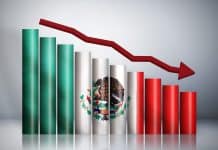Advertisements
The specialists in debt are advising cash-strapped borrowers to follow in the footsteps of AB InBev, CBR Fashion and others, tapping into their credit lines as soon as possible to avoid a cash crunch.
This week, the brewing giant withdrew the entire $9 billion of its revolving credit line, while German retailer CBR Fashion told investors it is accessing a credit line of 30 million euros. Across Europe, companies have withdrawn about $11 billion since March 13.
Advertisements

"Go ask now," said John Miesner, director of advisory at debt at KPMG. "If the lenders aren't supportive, then think about more draconian measures like cutting costs."
Advertisements
Many cash-strapped companies are following the advice as most of Europe and parts of the US are on lockdown to prevent the spread of the virus. The launch of the European Central Bank of a purchase program of debt of 750 billion euros ($820 billion) on Wednesday should help ease the liquidity crunch, but it is unclear how quickly these measures will trickle down to companies whose debt is not eligible for the pandemic bond purchase program.
A day earlier, banks demonstrated their cash hunger in the Bank of England's weekly liquidity operation, yet another sign of the funding squeeze brought on by the Quran virus pandemic. Demand was nearly 10 times greater on Tuesday than the average for the three months through February.
Some advisors, however, urge caution. Healthy borrowers who are best positioned to weather the storm should think twice before reaching out for their loans, according to law firm Allen & Overy.
"I'm getting questions from clients wondering if it's sensible to withdraw all of their RCF now and it depends on the company's circumstances," said Trevor Borthwick, a London-based partner at the firm. "If he's in strong financial health then I'm not sure he sees enormous value in doing it."
Companies are also concerned that their debt trip them up in the coming months if their earnings lag behind. It can take many months for non-compliances to occur because covenants are only checked periodically and use previous reporting periods.
Read More: Advice for those who feel drowned in debt
"Borrowers are wondering what forbearance they are likely to get from their lenders if they can't meet interest payments or satisfy covenant tests," said Glen Flannery, a partner specializing in restructuring and insolvency at CMS law firm in London. . "Those in already hard-hit sectors such as airlines, hotels and hospitality are wondering how they can access the liquidity they urgently need to stay afloat."
As for corporate defaults, the rate could rise to the highest level since the early 1990s, according to A&O's Borthwick.
"This is just the beginning," he said. "The hospitality industry, the airline industry are seeing multiple weeks of next to no revenue and the knock-on effect to the rest of the economy is huge."



